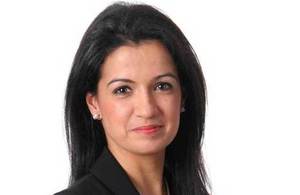Paving the way to mend broken hearts
A UK- Israel Science Fellow describes a six month-long journey to Jerusalem, in the quest of improving treatment for heart disease patients.

Dr Renata Gomes, a Cardiovascular Regeneration Scientist working in various UK institutions. She was a 2015 fellow of the UK-Israel Researcher Mobility Scheme.
“Collaboration isn’t about giving up our individuality; it’s about realizing our greater potential.” - Joseph Rain
Bringing scientists together is vital for progression and development. Regardless of how talented we may be as individual scientists; it is impossible to be an expert in every field. The UK-Israel Science Fellowships allow experts to come together, work towards a common goal, and reach their greatest potential.
Working in cardiovascular sciences, I use all available tools, and invent many, in order to develop minimally invasive methods for regeneration — even those to prevent heart attacks.
Like many scientists, I have faced hurdles in my work with nanotechnology for regeneration. Our biggest challenge, recently published in Nature Magazine, is the efficient delivery of biomolecules via nanotechnology to areas of injury; in order to prevent damage and its side effects. This is such a task that it has been set as a priority in the field for the next 30 years! However, 30 years is not a realistic time frame for all those currently at risk or unwell.
Here is where collaboration between scientists becomes so important. My idea provides a way for the local delivery of biomolecules to be carried by nanotechnology via our own blood. My former laboratory at King’s College London is world renowned in the study of biomolecules, but I needed input from experts in angiogenesis. It was clear to me that if I wanted my idea to be successful, I needed help — the kind I found at the Hebrew University of Jerusalem, a world leader in the field of angiogenesis and blood sciences.
Through my 6-month UK-Israel Science Fellowship I had the opportunity to live and research full-time in Jerusalem. During this period, the Hebrew University team and I were able to push forward my work; attaining in 6-months what may have otherwise taken two or more years.
This is thanks to the British Council, which awards the fellowship in partnership with the UK Government’s Science and Innovation Network, which sponsored all of my living and research costs in Israel, while my home institution continued my normal employment terms during this period.
Although I had not met my collaborators before, I knew their scientific work. It was an amazing opportunity to collaborate with world leaders and pioneers at the Faculty of Medicine at Hebrew University of Jerusalem. I was fascinated by my hosts’ passion for science, their ingenious nature and how much they cared for the project. Through this collaboration my idea is becoming a reality!
As for the practical aspects of the fellowship, getting a visa to remain in Israel was straight forward and fast through the Israeli Embassy in London. The people in Israel are very welcoming and helpful with day to day life matters. Importantly, if you cannot speak Hebrew don’t panic. Everyone speaks English (and a few other languages too)!
The UK-Israel Science Fellowship was a precious opportunity for scientific development. The collaborations I established will continue for many years to come. Furthermore, this is an outstanding and unique cultural opportunity to make friends for life. I greatly enjoyed this bilateral program and I highly recommend it.
Further information
Dr. Gomes is a Cardiovascular Regeneration Scientist working in various UK institutions. She was a 2015 fellow of the UK-Israel Researcher Mobility Scheme.